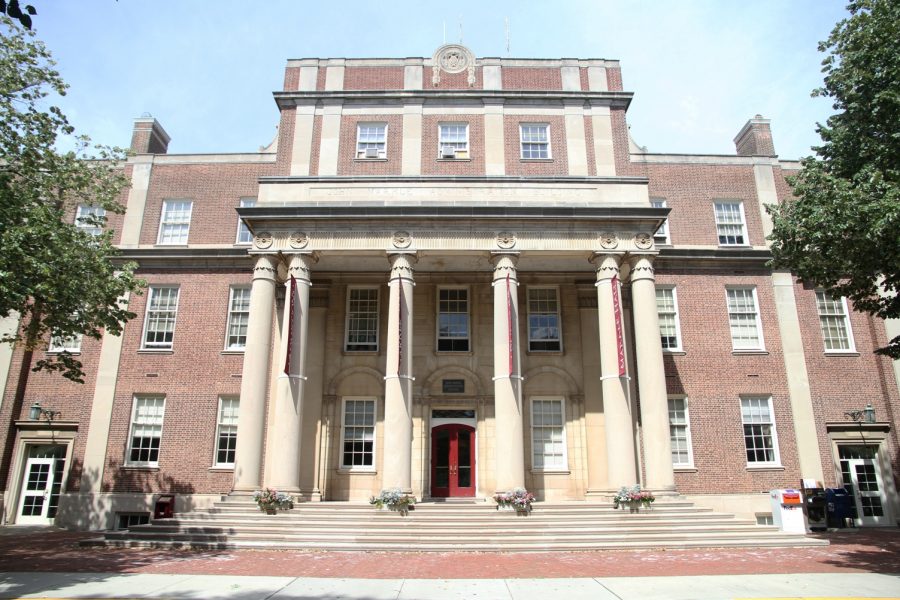For the past two years, the college has been undergoing an intensive self-study program under the watch of the Middle States Commission on Higher Education (MSCHE). Last week, the review process came to a close, and the college will be awaiting a decision on accreditation for potentially the next few months from Middle States.
A large committee made up of Lafayette staff and faculty assessed via the self-study whether or not the school reached certain Middle State standards, and how the college could achieve the standards it did not yet reach.
As a culmination of this process, the college was visited by a collection of faculty, staff and administrators from various colleges. The purpose of the team’s arrival on campus was to conduct a review and present a verbal summary of their report on the self-study process that Lafayette has been undergoing.
Dr. Jared Cohon, chair of the Middle States Reaccreditation review team, spoke at the presentation on Friday of the team’s findings.
The Middle States Commission identifies three “tiers” for the level of improvement an institution needs to complete. The top level is requirements, which represent what an institution must do to meet a failed standard.
The second tier is recommendations, which means that the school meets the commission’s standard. The third tier is suggestions, meaning that there are no requirements or recommendations, but the review team still has certain propositions for how the institution can continue to succeed.
In all areas studied by the review team, Lafayette achieved the third tier, having no recommendations or requirements. This was an improvement from Lafayette’s review five years ago, in which the college faced many requirements from the review team.
The review team still had suggestions for Lafayette, including “continuing to review the Common Course of Study using the assessment data,” clarifying a long-term plan for staff growth at Lafayette as the college continues to grow, as well as making sure that the committee structure at the school is not a burden on the faculty.
Cohon and the review team also found that due to the large number of faculty committees, they are not always efficient and have overlapping responsibilities. He noted that Lafayette has a long history of shared governance and that the committees represent this shared governance.
As a result, Cohon said that he and the review team recommend that Lafayette continue to improve committee structure, “embracing change while respecting the traditions and principles of shared governance.”
President Alison Byerly said she was pleased that “everything [the review team] said seemed consistent with [Lafayette’s] own community perceptions of things.” She said that the strengths mentioned by the review group reinforced aspects of the school that she and the committee at Lafayette felt good about, and that no unknown or unexpected problems were brought up.
Byerly also noted that she was aware of the staff growth issue, and expressed her hope for building a long-term staffing plan.
“[I’m glad the team] came away seeing the best of the college…and were impressed with the caliber of this community,” she said.
The review must still be brought to the Middle States Commission, and it may be several months before the Commission decides on the accreditation, Byerly said.
The MSCHE is a “voluntary, non-governmental, regional membership association currently serving higher education institutions,” according to their website, and “ensures institutional accountability, self-appraisal, improvement, and innovation through peer review and the rigorous application of standards.”
During the presentation last Friday, Cohon also highlighted some of the notable aspects of Lafayette College that the team found in their review.
He noted the strong faculty and staff, who are “hardworking and committed to the college,” an impressive administration, which he described as excellent with their transparency and responses to criticism, a very involved board of trustees and students who are positive about their experience at Lafayette.
Cohon also praised the number of student services and support systems at the college, including the First Year Seminar, peer mentoring and opportunities for hands on learning, especially opportunities for undergraduate research, study abroad programs and Alternative School Break.
He noted that the college today is probably “as strong as it ever has been.”
Correction 4/25/2019: Jared Cohon’s name was originally misspelled Cohen.

























































































































